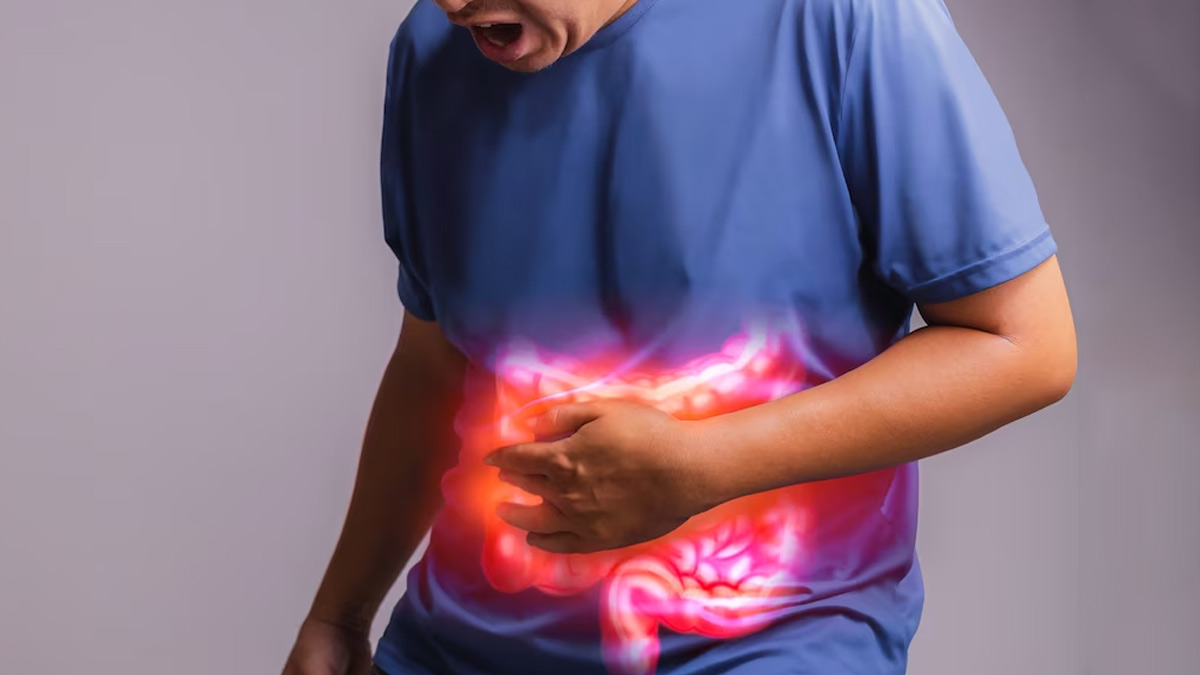
If you experience bloody stools, fever, diarrhoea, bloating, and severe pain, it may be a sign of Crohn’s flare which needs a medical emergency. This chronic inflammatory bowel disease is characterised by inflammation or swelling in a specific segment of the digestive system. It can result in progressive bowel damage and disability. We spoke to our expert Dr Vijay Kumar C Bada, Senior Consultant Surgical and Gastroenterology, HPB, Bariatric and Robotic Sciences Clinical Director, for expert insights on Crohn's disease management.
Table of Content:-

According to StatPearls, Crohn's disease is characterised by inflammation that affects the entire bowel wall, extending from the inner mucosa to the outer serosa layer. This condition typically follows a pattern of recurring flare-ups and periods of remission. With frequent relapses, Crohn's disease can evolve from its initial mild to moderate inflammatory state to more severe conditions, including penetration (fistulisation) or the development of strictures.
Diagnosis and Treatment For Crohn’s Flare-Up

“Unfortunately, curative therapy is not currently available for Crohn's disease. The condition typically follows a pattern of remissions and relapses and is diagnosed through a combination of laboratory tests, endoscopy, and cross-sectional imaging”, said Dr Bada.
Also Read: Ulcerative Colitis: Expert Explains The Disease And Lists Dietary Measures To Follow
Two Stages of Treatment
Dr Bada said that the treatment of Crohn's disease comprises two distinct stages: Induction of Remission and Maintenance of Remission. He explained them in detail in the following manner:
Induction of Remission
Mild to Moderate disease
- No need for 5-ASA compounds (pain relief and anti-inflammatory medication)
- Budesonide, a medication for inflammatory bowel disease, is recommended
- Antibiotics won't help
For Moderate to Severe Disease
- Systemic corticosteroids are used for reducing inflammation and swelling.
- Thiopurines (medication for IBD) won't be effective.
- Methotrexate can be considered if you depend on steroids.
- TNF inhibitors like infliximab, adalimumab, and certolizumab pegol are recommended.
- For those who don't respond well to standard treatment, a combination of infliximab and thiopurines is suggested.
- Ustekinumab is recommended for those who don't respond well to standard treatment or anti-TNF medication.
- Vedolizumab is recommended for those who don't respond well to standard treatment or anti-TNF medication.
Maintenance of Remission
- 5-ASA compounds are not suitable.
- Thiopurines are a good choice.
- Methotrexate can be used for Crohn's disease when you rely on steroids.
- Infliximab is effective.
- Vedolizumab is another option.
- Ustekinumab can also help in maintaining remission.
Also Read: World Inflammatory Bowel Disease Day: Differences Between Ulcerative Colitis And Crohn's Disease
When And How Is Surgery Performed

Dr Bada listed the surgery for Crohn's disease as follows:
- Strictureplasty: Heinke Milkulicz or Finney's is preferred over resection.
- Stoma: Considered in patients on preoperative corticosteroids.
- Resection and anastomosis can be safely performed in patients on monoclonal antibody therapy preoperatively.
- Restorative proctocolectomy with IPAA for pancolonic Crohn's disease.
Monitoring and Response Assessment

Dr Bada said, “Clinical and biochemical response to treatment in Crohn's disease is assessed at 12 weeks using faecal calprotectin and CRP. Also, the endoscopic and transmural response is evaluated after six months of initiating therapy.”
Management of Relapse/Flares
Recognising a Relapse

“Relapse or flare-up in Crohn's disease is defined as the reappearance of clinical symptoms after a period of remission. It is often triggered by non-compliance with medication, stress, or underlying ongoing inflammation”, said Dr Bada. He added, “Its diagnosis involves a combination of clinical, biochemical, and radiological parameters.”
Evaluation For Crohn's Disease
- Serum CRP
- Faecal calprotectin
- Endoscopic imaging
- Cross-sectional imaging (CT or MR enteroclysis)
- Testing for Clostridium difficile and CMV infection
Management Of Crohn's Flare-Up
“Management of a Crohn's disease relapse includes assessing severity through clinical and endoscopic scoring systems and reintroducing induction therapy. If medical management does not yield an adequate response, surgical treatment becomes a consideration”, highlighted Dr Bada.
[Disclaimer: The information in this article is shared by a registered healthcare professional and is for informational purposes only. We advise you to not substitute this information with medical treatment. It is necessary to visit your expert if you notice any complications.]
How we keep this article up to date:
We work with experts and keep a close eye on the latest in health and wellness. Whenever there is a new research or helpful information, we update our articles with accurate and useful advice.
Current Version